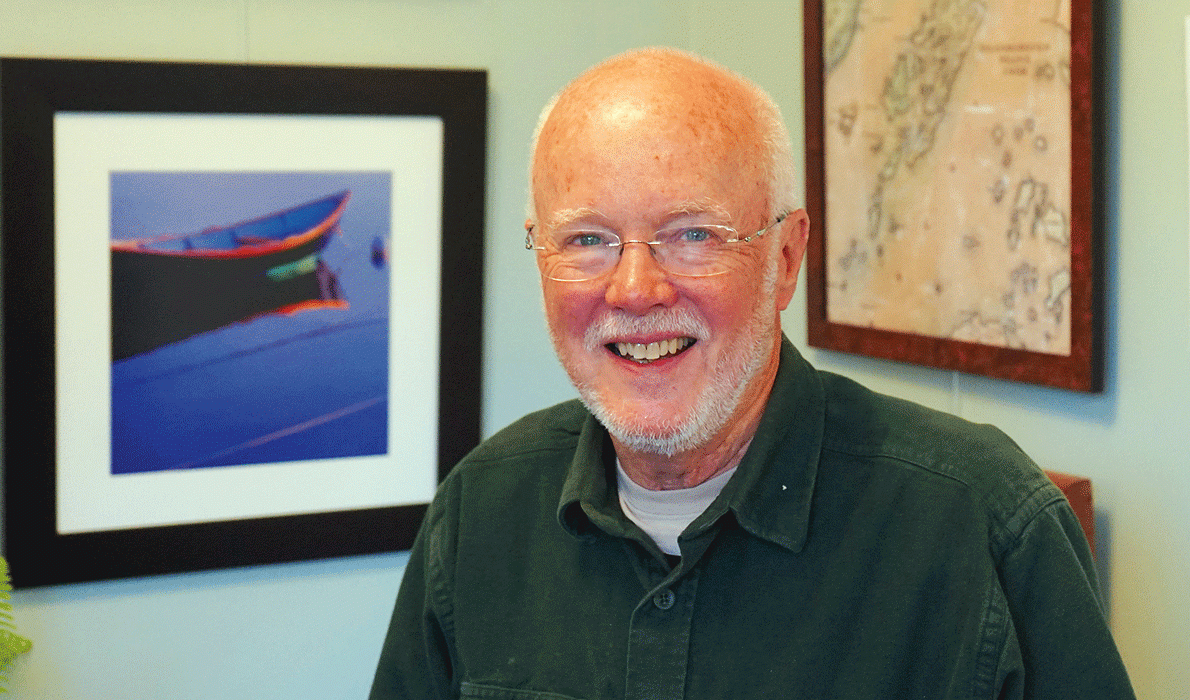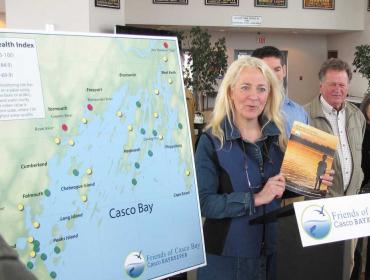Posted November 13, 2018
Last modified November 13, 2018
By Tom Groening
The image of a patient laying on a psychiatrist’s couch, telling the doctor that his mother never loved him and his father was too demanding, is a familiar one in our popular culture.
Another image comes to mind after hearing Islesboro’s Dr. Michael Kerr explain the theories of psychiatrist Murray Bowen (1913-1990). Kerr is a practitioner of Bowen’s “family systems” concept, which posits that our emotional ties to mother, father, and siblings can limit our development.
So a better image may be that of an adult moving through the world with ropes extending out to mother, father, and siblings, slowing, or even impeding forward progress toward maturity and what Bowen called “differentiation of self.”
Kerr will publish a book on Bowen early next year.
For Kerr, Bowen’s theories are not merely appealing academic ideas. His brother, six years older, suffered from schizophrenia, and ultimately took his own life. The shadow Billy cast over Michael and their parents was dark and pervasive, and led Kerr to move away from his goal of being a cardiologist to being a psychiatrist.
The theory rang true to what he had witnessed in his family, and all these years later, he still can describe the subtle but emotionally powerful shifts in the family mood, depending on what was happening with Billy.
Kerr, 77, settled on Islesboro permanently in 2011, but his ties to the island date to the early 1970s, and his visits to Maine began in the late 1960s, traveling to a friend’s family cabin in the Boothbay area. That friend’s father was psychiatrist, which also may have influenced his career path.
Kerr continues to practice on the island.
“I do a lot of Skype”—counseling via video over the internet, as well as seeing patients at the island’s health center, he said over coffee at Blue Water Café in the island community center.
Kerr grew up in Swarthmore, Penn., attended Notre Dame and then Georgetown Medical School, and served two years in the U.S. Navy as a psychiatric medical officer. He worked with prisoners of war returning from Vietnam.
“That was a fascinating experience, to meet these guys who had been held captive so long,” and learning how each had coped.
ENTER MURRAY BOWEN
While in medical school, Kerr heard Bowen lecture about his theories and research, the crux of which was what he described as “maternal instinct run amok” which could be blamed for those who failed to “differentiate” as individuals, who failed to launch into adulthood. Bowen’s views were contrary to Freudian psychology, which focuses more on the individual.
Bowen did research with schizophrenics, having them live for years at a time in a clinical setting in which they could be observed. A break-through came, though, when he brought the patient’s entire family into the residential setting. Complex and charged dynamics between parents and child emerged—to use the earlier metaphor, when those ropes connecting each to each were tugged—which revealed behavioral triggers.
Reflecting on his own family’s story with Billy, Kerr sees, in retrospect, what Bowen was discovering.
“He could never lift off and assume adult responsibility,” he said of his brother, which was a big burden for the family. “Billy got stranger and stranger.”
When Billy was hospitalized from time to time, “the whole family calmed down,” Kerr remembers.
“The anxiety affected the family, and it affected Billy,” he said. “I was outside the intensity of it all,” but his father became “malignantly anxious,” eventually developing esophageal cancer.
“It ultimately killed my father,” Kerr said.
While Bowen’s theories might seem to blame the mother, or suggest that the less emotional connection one has with the nuclear family the better, Kerr said this is not so. Adolescent rebellion is a necessary step.
“He’s trying to break away, not grow away,” he explained. Once “differentiated,” the healthy adult can have healthy emotional relationships with family.
After hearing Bowen lecture while Kerr was in medical school, he sought him out to ask him to supervise his training. Kerr worked closely with Bowen at Georgetown, beginning in the early 1970s. He distinctly remembers thinking about going into the more lucrative world of private practice, but then thinking, “What if I had passed up the chance to work with Charles Darwin?” After working with him for 20 years, Kerr succeeded Bowen on his death as director of the Georgetown Family Center.
THEORY INTO PRACTICE
The theories guide Kerr’s work today, and he explains that they apply to many psychological problems, not only to schizophrenia.
“I’m really there to try to help people think differently about the problem,” he said. “I help people tell their story so that it resonates with them.”
A gentle, soft-spoken man, Kerr shares examples of some of the problems he sees in his practice, and even an example of a mild conflict in his own marriage. There’s no evidence that he’s got all the answers, but rather that he hopes to offer ways to address the pain we all inflict and bear.
In 1988, Kerr wrote Family Evaluation: An Approach Based on Bowen Theory, and in February, he will publish Bowen Theory’s Secrets: Revealing the Hidden Life of Families. He also heads up the nonprofit Bowen Theory Academy, which offers webcasts and conferences.

Contributed by




